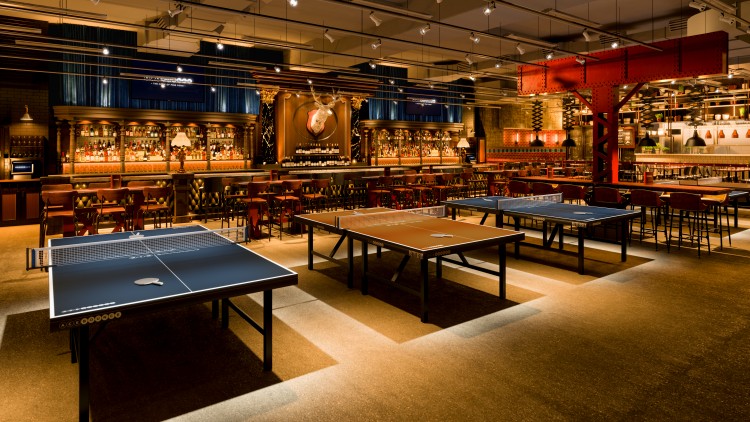60 Seconds on Experience, Esports, and Elusive Profits
September 28 2017

Blah blah blah experience blah blah blah theatre
- If you want to sound like you know what’s up, just figure out a way to get ‘experience’, ‘esports’, ‘ping-pong’, and ‘food courts’ into a sentence or two.
- For example: ‘I’m so tired of boring old pubs serving evil, corporate lager — I’m much more into esports — more like THE sports, am I right! — and I love buying new experiences at my local food court. Most of all though, at the end of the day, I just want to drink cocktails and play ping pong in a basement somewhere.’
- This doesn’t have to make much sense, it’s just the sort of thing you should be saying these days.
Show me the money!
- As cool as adult-only ball pits (not kidding) might be, these experiential ventures are not a license to print money.
- Far from it, in some cases. A walk through Companies House accounts can yield some pretty eye-watering losses.
- Bounce lost £1.4m in the year to September 2016 and Flight Club made a loss of £298k in the year to December 2015.
- Operators with video games, mini-golf courses, ping pong tables, high-tech dart boards, etc. might sound new, but they make their money from F&B sales, just like everyone else.
No really, show me the money…
- Esports is here to stay, but continues to search for a sustainable business model. Many companies have come, spent money, and gone.
- Game Digital has its BELONG division for social gaming, but it will take a while before this makes a meaningful contribution to group sales.
- Even then, we are unclear how exactly these social gaming sites will make money.
- Gfinity, meanwhile, has taken on the bold role of bringing competitive esports to the UK in a big way.This will take time and a considerable pile of cash.
- In such a rapidly evolving industry, the surest bet looks to be Sweden’s MTGx, which owns flagship esports brands Dreamhack and ESL.

